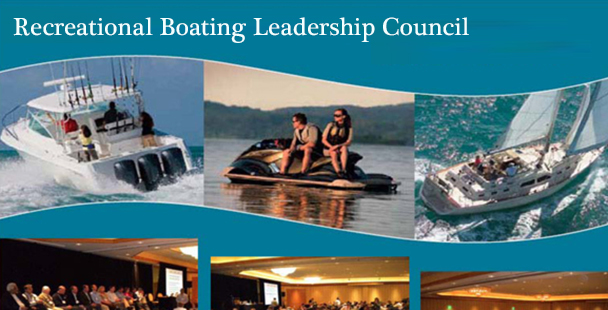RBLC committee shines light on youth boating programs

With the launch of the new youth web portal on Discover Boating, it’s a good time to take a look at the project and the Recreational Boating Leadership Council’s youth boating subcommittee.
Headed up by George Harris at the Northwest Marine Trade Association and Keith Christopher with Boy Scouts of America, the group collected more than 3,000 boating programs for young people with the help of a wide array of industry stakeholders.
Harris said the monumental project is far from complete, but he thrives on such unique undertakings; which is what brought him into the RBLC initially.
“I’m really fascinated with the process of solving long-term challenges like this,” said Harris. “As we try to address these long-term challenges like affordability, diversity and attracting young people into boating is really, really interesting.”
He said the problem statement was easy to find: get more young people into boating. How would be a little trickier.
“Well, we need to have more youth boating programs or support more youth boating programs or attract more young people into youth boating programs,” said Harris. “I suppose in there someplace is an assumption that Generation X perhaps hasn’t passed on boating to their children, so maybe it’s going to have to come from outside: like a camp, or a community program or something like that that will teach boating to the current group of elementary school kids.”
Collecting all that data became the soul focus of the, but none of the really understood how much legwork it would take. Harris said the first thing he did was put a staffer to work finding local programs.
“I asked a young woman in our office to, in between tasks, to make me a list of all the youth boating programs in Washington State,” said Harris. “So she did that and came up with almost 60 youth programs in the state of all different shapes in sizes. So there we go, one state down, 49 to go!”
He said that it was clear that they were on the right path after that initial batch of programs.
“My observation in working with the 60 programs here in Washington State is that they’re really very, very, very small entities,” said Harris. “Under-funded but passionate people that care about boating, but they’re not promoters, they’re not marketers, they’re not customer-service people. They know how to teach.”
With that small test group proving the value of their idea, Harris rallied trade associations in every corner of the country.
“I just thought it was a natural role for the regional trade associations like ours, or Lake Eerie, or Michigan or Connecticut or Maryland – and at that time I was chairing the informal association of regional marine trade associations, something called the National Marine Trade Council,” said Harris. “I thought, ‘I’ll just use my role there to get my other association partners to help me find these programs.”
It was slow going with association staff contributing between projects, but the subcommittee members could see they were crawling toward their goal.
“The thing is with these tasks forces is that the people that sign up for them are really, really busy people, and they’re not looking for more to do but they can’t say no or they know it’s important,” said Harris. “It was a little harder than I thought to get the data. You know, everyone is already on overload anyway.”
Eventually the group collected a substantial number of youth boating programs from the biggest boating states.
“We just kept chipping away at it,” said Harris. “So with some good effort, we came up with about 280 youth boating programs from about a dozen states.”
With that program data in hand, he then reached out to Jack Gierhart with U.S. Sailing for their massive list of sailing programs.
“So we have over 3,000 programs all at once,” said Harris, adding that the logical place to put the database was on Discover Boating. “It’s the best thing we’ve got going for promoting boating. So now if someone gets on Discover Boating, they’re going to say, ‘I had no idea there were boating schools and camps all over. That’s how I learn to boat.’”
The database will continue to grow, and the tricky business of auditing interaction and responsiveness from the individual programs begins. As for what’s next for the subcommittee, that’s up for discussion.
Harris said the project and the drive of the subcommittee boils down to creating lifelong boaters any way they can.
“You just need to program them early,” said Harris. “Those experiences you have when you’re young stay with you the rest of your life.”




